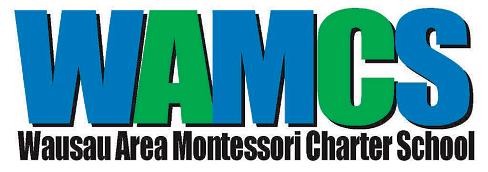
7 minute read
CAPiTOL EYE
Unfazed
Gov. Evers says he’s not concerned about possible GOP lawsuits over COVID relief money
Advertisement
Gov. Tony Evers says he’s not concerned Republican
lawmakers could take him to court over the distribution of $3.2 billion in federal COVID-19 relief money.
The Dem governor recently vetoed GOP bills that would have directed how stimulus funds should be spent in Wisconsin. Assembly Speaker Robin Vos, R-Rochester, recently said legal action against the governor would be a “last resort.”
“This Legislature has made that part of their DNA, I think,” Evers said in an interview aired April 25 on “UpFront,” produced in partnership with WisPolitics.com. Conservatives have sued Evers several times in the more than two years he’s been in office.
“We’re in the right place. We just need to get money out the door. If they want to spend their time messing around with this, they’ll be spending taxpayers’ money to prevent taxpayers from getting money,” Evers said. “It seems irrational to me, but we’ll see what happens. We’re always prepared.”
Evers said his priority is getting the money to people and businesses most impacted by the pandemic.
He said that would include small businesses, child care centers, and the tourism industry. Evers last week announced a $420 million grant program for small businesses hurt in the pandemic.
“That’s an area that has been struggling right along, so there should be no disagreement on that, the need and frankly our ability to get it out the door as quickly as possible,” the governor said.
Evers also said he thinks demand for the COVID-19 vaccine is “plateauing,” rather than slowing, and the state is switching up its vaccine distribution strategy.
“What we do need to do now, and we’ve already started it, is reach out to historically hesitant communities,” Evers said.
“It is going to take some different strategies, frankly a lot of smaller efforts, all across the state,” he said.
Thompson: Fall UW classes will be in person
UW System President Tommy Thompson said he would “not accept failure” in efforts to get back to 75 percent in-person classes come fall.
“We’re going to succeed. I don’t accept failure. I want to make darn sure that we open up. The chancellors are on board,” Thompson said on the April 25 “UpFront” show.
He said the goal of 75 percent in-person classes is about where the system was before the pandemic, given the number of classes that are normally taught online.
Thompson said vaccinations for students, faculty and staff would be key to efforts to reach 75 percent in-person learning.
“But if they are not vaccinated, we are going to keep testing, we’re going to make sure that our universities are as safe as they possibly can be,” he said.
COVID relief money to UW won’t fill losses
Chancellors for the UW System’s two largest campuses this afternoon warned that hundreds of millions in federal COVID relief money doesn’t even come close to making up for lost revenue.
In a WisPolitics.com-Milwaukee Press Club virtual luncheon on April 22, UW-Madison Chancellor Rebecca Blank and UW-Milwaukee Chancellor Mark Mone told viewers universities will still need the boost in state funding proposed by Dem Gov. Tony Evers in order to stay competitive with other systems.
Some GOP lawmakers have questioned why Wisconsin taxpayers should front the $191 million increase in Evers’ budget request if the system already received federal funding to offset losses brought on by the pandemic. Blank called that assessment a “complete misunderstanding” of the aid going to universities.
She noted how federal law dictates the relief dollars must be spent on costs related to the pandemic, such as housing and dining and additional safety measures. She also mentioned how about half of the total federal money must go directly to students.
“It’s one-time money and we’ve got to spend it on filling a hole,” Blank said. “When thinking about inflation, salaries ... none of that can be federal dollars. That has to be state investment in higher education.”
She went on to say that Madison expects to receive $40 million to $45 million from the American Rescue Plan, which wouldn’t even make up for the $50 million funding lapse Evers ordered after anticipating a strained 2021-23 budget.
The Speaker’s Task Force on Racial Disparities recommends banning police chokeholds except in “life-threatening situations or in self defense.”
Meanwhile, the task force failed to reach a consensus on the use of no-knock search warrants after Gov. Tony Evers had previously called for an end to both.
The commission’s recommendations include creating criminal penalties for law enforcement officers who fail to intervene or report to a superior when a colleague uses excessive force.
The task force, created after a Kenosha police officer shot Jacob Blake last summer, released its report one day after a jury found former Minnesota police officer Derek Chauvin guilty on three counts. Chauvin killed George Floyd by kneeling on his neck.
The recommendations align with some of Evers’ budget proposals, such as creating and allowing access to officer employment records and creating some kind of deterrent for people unnecessarily requesting police assistance. But they fall short of his calls to ban no-knock warrants and chokeholds.
WI will hang on to its Congress seats following census
Wisconsin has held onto its eight congressional seats, according to new U.S. Census Bureau reapportionment data.
The state’s population grew 3.6 percent over the past decade to nearly 5.9 million people. That growth rate exceeded the average for the Midwest of 3.1 percent.
But it was well behind the 7.4 percent growth the nation saw as a whole as the U.S. population neared 331.5 million.
It’s also a significant drop from the 6 percent growth Wisconsin saw between 2000 and 2010.
The latest figures keep Wisconsin as the 20th largest state by population.
Population growth among Wisconsin’s immediate neighbors included: *Minnesota 7.6 percent. *Iowa 4.7 percent. *Indiana 4.7 percent. *Michigan 2 percent. *Illinois minus-0.1 percent.
The states losing a seat are California, Illinois, Michigan, Ohio, New York, Pennsylvania and West Virginia.
Texas will gain two seats. Those gaining one are Colorado, Florida, Montana, North Carolina and Oregon.
District-level data to draw new lines won’t be available until September.
REGISTRATION FOR THE 2020-2021 SCHOOL YEAR IS OPEN!



Guiding childrenGuiding childrento be life-long learner to become lifelong learners and globals and globalcitizens citizensof moral of moral character.character.
We We are a public school charteredare a public school chartered by bythe Wausau School Districtthe Wausau School District serv serving students in Kindergarten - 6th Grade.ing students in Kindergarten through 6th Grade.
A Montessori education focuses on the whole child where physical, emotional, social, and cognitive needs are equally valued. Through guidance and support, children use their senses to interact with concrete materials that are precursors to fostering an understanding of abstract concepts. Our multi-age classrooms encourage children to take care of themselves and their environment.
If you are interested in Montessori education for your child, contact us to set up a tour! You will have the opportunity to meet our Head of School, tour classrooms and receive information about our Montessori Philosophy and educational practices. 3101 N.3101 N. 13th 13th Street, eet, Wausau, WI 54403ausau, WI

There are no tuition fees to attend our school!
(located inside the Horace Mann Middle School Building) For more information, contact Elizabeth Channel at echannel@wausauschools.org or call 715-261-0795. 21279
From the Attorney’s Desk
by Jason Krautkramer, J.D.
ECKERT & KRAUTKRAMER, LLC
325 N. 1st Ave., Suite325 N. 1st Ave., Suite 1 • 1 • Wausau, WIWausau, WI. 54401 715-842-0907 • jason@eckertlawllc.com
Reviewing Your Beneficiaries
How your accounts and property are owned makes a big difference for estate planning. One common objective is to have beneficiaries on your accounts and property so you can avoid probate when you die.
Accounts and property with beneficiary designations, pay-on-death designations, or transfer-on-death registrations will be distributed at your death, without probate, to the beneficiaries you have named.
If you named only one beneficiary (primary) and that person predeceases you, the account will be distributed according to the default rules in the policy unless you update the primary beneficiary designation or have named a backup (contingent). These default rules may give the balance of the account or policy to your spouse, your heirs, or your estate (which will require your loved ones to go through probate).
Schedule an appointment to review your plan.




